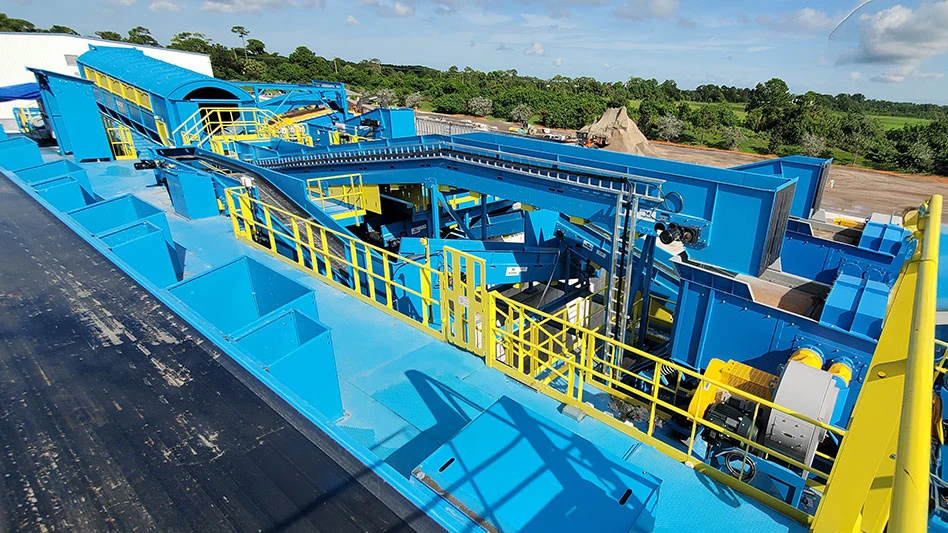
The United Kingdom operating subsidiary of France-based Veolia says it has fulfilled a contract to design and manage a biogas-fired combined heat and power (CHP) energy plant with 520 kilowatts of electricity capacity for Rose Hill Recycling in Gloucestershire, U.K. The CHP plant is fueled by the biogas derived from mixed food waste collected from across the Cotswolds region of England and will save around 1,750 tonnes of CO2 emissions each year, says Veolia.
Based in Dymock, England, Rose Hill Recycling is a composting and recycling facility that processes 35,000 tonnes of food and farm waste each year. The new CHP site will be able to generate 4.56 gigawatt hours of renewable each year – enough energy to supply around 1,400 homes, according to Veolia.
The site’s anaerobic digestion (AD) facility uses the heat from the CHP to help turn the food waste, animal waste and energy crops into biogas. The biogas is then back to the cogeneration unit to provide electricity and heat, reducing power demand from the local grid and contributing to the government’s target for 20% of the U.K.’s power to come from renewable sources by 2020. The CHP plant also will add to Veolia’s existing 40 megawatts of U.K. biogas electricity generating capacity, says the firm.
“Reducing food waste is very important, but our unavoidable and inedible food waste still has a value as a resource,” says Gavin Graveson, Veolia’s public and commercial chief operating officer. “Current estimates show that if all the U.K.'s inedible domestic food waste was processed by AD, it could generate enough electricity for 350,000 households. By effectively optimising all the opportunities for biogas CHP, we will ensure we can capture this valuable resource and contribute even more to the circular economy. This latest project effectively moves nearer this goal and has already saved over 1,300 tonnes of emissions.”
Mark Bennion, owner and director of Rosehill Recycling comments, “Food waste sent to landfill gives off methane, which is around 20 times more harmful to the environment than CO2. By using these scraps and peelings as a renewable energy resource, rather than sending it to landfill, we can help reduce carbon emissions and save local taxpayers money by recycling. It’s a win-win solution that will help to protect our environment.”
Latest from Recycling Today
- Greenwave raises revenue but loses money in Q2 2025
- Recycled steel prices hold steady
- EY says India’s need for scrap imports will continue
- Coming full circle
- Amcor, DCM introduce fertilizer packaging with 35 percent recycled content
- Comstock Metals gets closer to commissioning commercial-scale solar panel recycling facility
- Washington selects Circular Action Alliance as PRO
- Smurfit Westrock expands in Latin America





